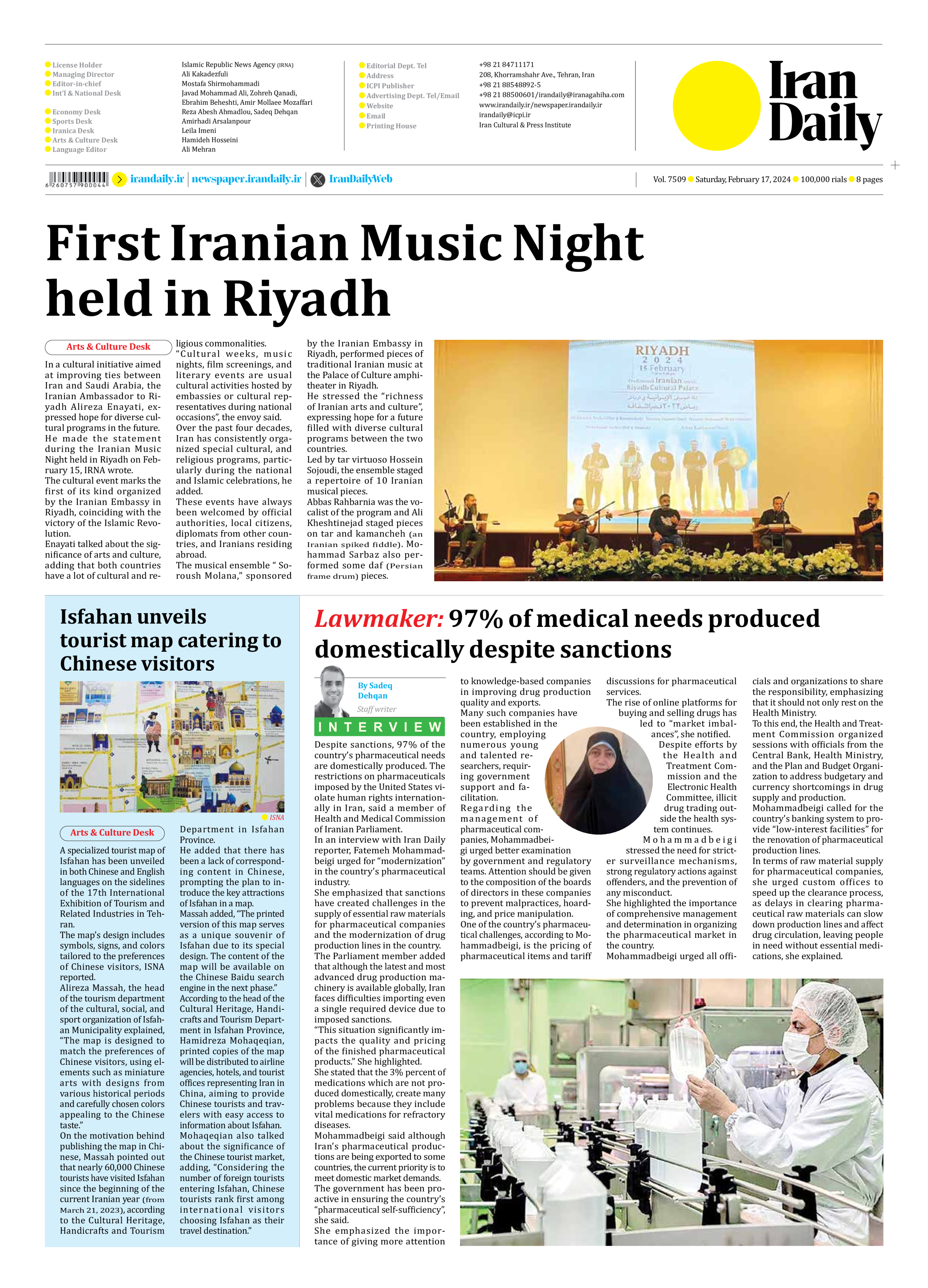
Lawmaker: 97% of medical needs produced domestically despite sanctions
By Sadeq Dehqan
Staff writer
Despite sanctions, 97% of the country’s pharmaceutical needs are domestically produced. The restrictions on pharmaceuticals imposed by the United States violate human rights internationally in Iran, said a member of Health and Medical Commission of Iranian Parliament.
In an interview with Iran Daily reporter, Fatemeh Mohammadbeigi urged for “modernization” in the country’s pharmaceutical industry.
She emphasized that sanctions have created challenges in the supply of essential raw materials for pharmaceutical companies and the modernization of drug production lines in the country.
The Parliament member added that although the latest and most advanced drug production machinery is available globally, Iran faces difficulties importing even a single required device due to imposed sanctions.
“This situation significantly impacts the quality and pricing of the finished pharmaceutical products.” She highlighted.
She stated that the 3% percent of medications which are not produced domestically, create many problems because they include vital medications for refractory diseases.
Mohammadbeigi said although Iran’s pharmaceutical productions are being exported to some countries, the current priority is to meet domestic market demands.
The government has been proactive in ensuring the country’s “pharmaceutical self-sufficiency”, she said.
She emphasized the importance of giving more attention to knowledge-based companies in improving drug production quality and exports.
Many such companies have been established in the country, employing numerous young and talented researchers, requiring government support and facilitation.
Regarding the management of pharmaceutical companies, Mohammadbeigi urged better examination by government and regulatory teams. Attention should be given to the composition of the boards of directors in these companies to prevent malpractices, hoarding, and price manipulation.
One of the country’s pharmaceutical challenges, according to Mohammadbeigi, is the pricing of pharmaceutical items and tariff discussions for pharmaceutical services.
The rise of online platforms for buying and selling drugs has led to “market imbalances”, she notified.
Despite efforts by the Health and Treatment Commission and the Electronic Health Committee, illicit drug trading outside the health system continues.
Mohammadbeigi stressed the need for stricter surveillance mechanisms, strong regulatory actions against offenders, and the prevention of any misconduct.
She highlighted the importance of comprehensive management and determination in organizing the pharmaceutical market in the country.
Mohammadbeigi urged all officials and organizations to share the responsibility, emphasizing that it should not only rest on the Health Ministry.
To this end, the Health and Treatment Commission organized sessions with officials from the Central Bank, Health Ministry, and the Plan and Budget Organization to address budgetary and currency shortcomings in drug supply and production.
Mohammadbeigi called for the country’s banking system to provide “low-interest facilities” for the renovation of pharmaceutical production lines.
In terms of raw material supply for pharmaceutical companies, she urged custom offices to speed up the clearance process, as delays in clearing pharmaceutical raw materials can slow down production lines and affect drug circulation, leaving people in need without essential medications, she explained.







